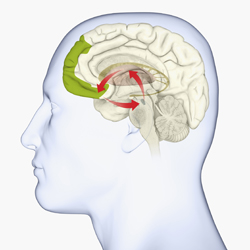Insights into the brain chemistry of good behaviour
Usually, good behaviour that allows us to adapt to a changing environment is rewarded, while inappropriate behaviour is punished. The neurotransmitters DA and 5-HT modulate the impact of reward and punishment, respectively, on our behaviour. In order to better understand how these hormones interact to affect the motivational control of behaviour, the PHARMACO-FMRI project was established. The project is a multidisciplinary study bringing together individuals with expertise in the psychopharmacology and toxicology of behaviour. Scientists skilled in the use and development of advanced functional magnetic resonance imaging (fMRI) techniques are also involved. The team is studying the effects of drug-induced changes in DA and 5-HT on motivational learning and brain activation. The drugs they are using are methylphenidate (Ritalin) and escitalopram (Lexapro), which cause an increase in DA and 5-HT production. Project partners are comparing brain activity under drug-induced conditions and under placebo conditions. Researchers are also in the process of testing new fMRI techniques, including arterial spin labelling (ASL) and calibrated BOLD fMRI to measure brain activity. Research results are expected to increase understanding of the roles that DA and 5-HT play in motivational learning. In addition, they may help to improve the methodology used in pharmacological fMRI research and lead to improved treatment for psychiatric patients.

